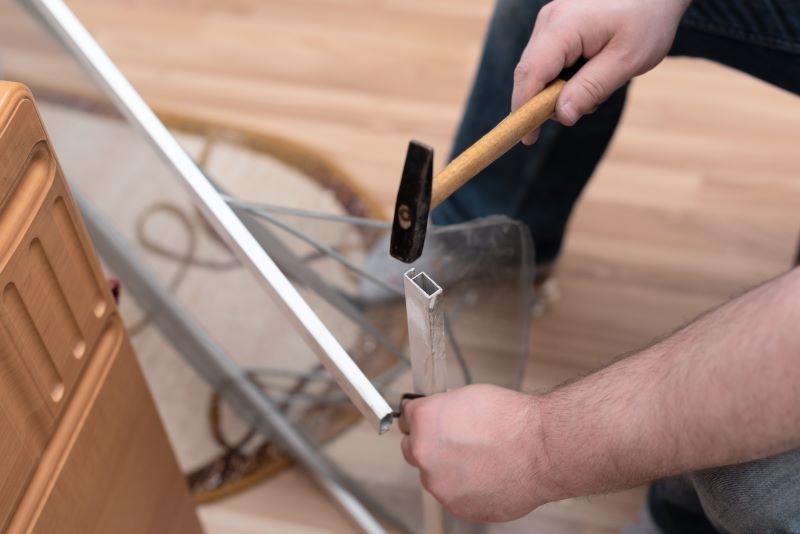In the realm of home improvement, the importance of skilled contractors, architects, and interior designers is widely acknowledged. However, the role of a lawyer is often overlooked. While it may seem an unconventional addition to your home improvement toolbox, a lawyer can provide invaluable assistance in navigating complex legal requirements, drafting solid contracts, protecting against scams, and resolving any arising disputes. This article delves into the crucial roles a lawyer plays in home improvement endeavors, emphasizing the necessity of their expertise in ensuring a smooth, legal, and satisfying renovation experience.
Key Takeaways
– Understanding legal requirements is crucial before starting home improvement projects, including procuring necessary permits and complying with building codes and safety regulations.
– Drafting solid contracts with contractors is important for a smooth home improvement process, including discussing project specifics, timelines, quality standards, and payment terms.
– Staying vigilant against potential scams during home improvement projects is necessary, and a lawyer can help vet contractors, review contracts, and set up secure payment structures.
– Expert legal guidance is essential in resolving disputes and legal issues that can arise during home improvement projects, including negotiation tactics, preparation of strong legal arguments, and strategies for litigation if necessary.
Understanding Legal Home Improvement Requirements
In the realm of home improvement, it is imperative to fully understand the legal requirements before embarking on any construction or renovation projects. This includes, but is not limited to, permit procurement and adhering to zoning regulations.
Permit procurement is a critical first step in any home improvement project. It involves obtaining necessary permissions from local authorities to ensure your project complies with building codes and safety regulations. Failure to procure appropriate permits can lead to significant fines, legal complications, and even demolition of unauthorized work.
Zoning regulations, on the other hand, govern the use and development of property within specific districts. These rules determine what types of structures and activities are permitted in each zone. For instance, the nature of your home improvement project may be restricted if your property is located in a residential zone, as opposed to a commercial or mixed-use zone.
Drafting Solid Contracts With Contractors

To safeguard your interests and ensure a smooth home improvement process, it’s essential to draft solid contracts with your contractors. This legal document serves as a safety net, stipulating the terms and conditions that govern your relationship with the contractor, and offering legal recourse in case of disagreements or disputes.
In the heart of these contracts lie two critical aspects: Contractor Negotiations and Payment Terms. Contractor Negotiations involve discussions on project specifics, including timelines, quality standards, materials used, and potential penalties for non-compliance. This section should be crystal clear and cater to your specific needs while being agreeable to the contractor.
Payment Terms, on the other hand, dictate the financial obligations of both parties. They determine the payment schedule, the amount, and the method of payment. It’s also prudent to include conditions under which additional payments may be warranted.
In the complexity of these contract elements, a lawyer’s expertise becomes invaluable. They can ensure that contracts are legally sound, fair, and protect your interests. Thus, in your home improvement endeavors, the unexpected but essential toolbox addition is a lawyer, making the process legally secure and stress-free.
Safeguarding Against Home Improvement Scams
Navigating through your home improvement journey, it’s crucial to stay vigilant against potential scams, which is where a lawyer’s role becomes increasingly significant. Engaging a lawyer provides a crucial layer of scam identification and fraud prevention.
A lawyer can help you in the following ways:
1. **Vetting Contractors:** Your attorney can assist in performing thorough background checks on potential contractors, identifying any history of fraudulent activities.
2. **Reviewing Contracts:** A lawyer can help inspect your home improvement contracts, ensuring the terms are equitable and devoid of loopholes that could be exploited.
3. **Monitoring Payments:** Your legal counsel can help set up a secure payment structure to prevent any fraudulent transactions.
4. **Dispute Resolution:** In case of any disagreements or potential scams, your lawyer will be equipped to handle the legal aspects and protect your interests.
Therefore, a lawyer’s expertise in deciphering complex legal jargon, combined with their knowledge of local regulations, makes them an indispensable ally in your journey towards a successful home improvement project. Their inclusion in your toolbox can be the difference between a dream home and a costly nightmare.
Resolving Disputes and Legal Issues – Abogado de Accidente San Jose
When embarking on a home improvement project, numerous legal issues and disputes may arise, reinforcing the necessity for expert legal guidance. Legal documentations can be intricate and complex; thus, misreading or misunderstanding a single clause can lead to substantial issues that can obstruct your project’s progress.
In a typical home improvement project, disputes may arise concerning contract terms, quality of work, timelines, or payment issues. Such conflicts can lead to project delays, additional costs, and overall dissatisfaction. Here, a lawyer’s expertise in negotiation tactics proves invaluable. They can help resolve these disputes amicably and efficiently, often without resorting to litigation, thus saving both time and resources.
Furthermore, should the dispute escalate to the Abogado de Accidente San Jose courts, your lawyer can prepare strong legal arguments to protect your interests. They can meticulously review all relevant legal documentations, identify potential weaknesses in the opposing party’s claims, and strategize accordingly.
Conclusion
In summation, the significance of acquiring legal counsel during home improvement ventures cannot be overstated. It provides an indispensable shield against potential scams, fosters the creation of robust contracts, and bolsters the resolution of disputes. A lawyer’s expertise hence elevates the homeowner’s understanding of legal requirements, enabling a smooth and legally sound home improvement journey. Therefore, incorporating a lawyer into the home improvement process is an unexpectedly essential tool in ensuring a successful and legally protected endeavor.